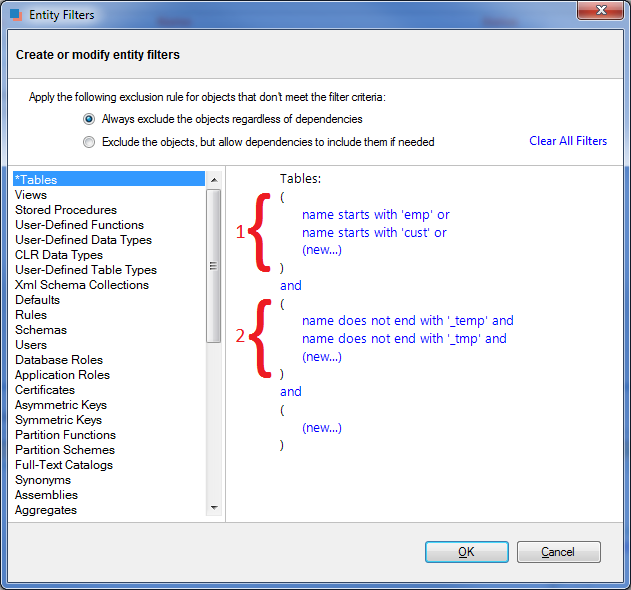The entity filter is a collection of conditions that allows you to include or exclude database objects. Conditions are organized into units called groups. A single group contains conditions combined with the same operator: AND/OR. The groups themselves can be combined with an operator that may be the same as or different from the conditions' operator.
There is no limit to the number of groups that a filter can have or the number of conditions contained in a single group. In order to keep the filter simple, we recommend that you place all conditions that can be combined with a common operator in the same group. Create additional groups only if you need conditions that require a different operator.
The following filter, for example, defines two conditions combined with the AND operator. It requires only one group.
- name does not start with "v_temp" and
- name does not contain "temp"
The following filter, on the other hand, contains conditions that requires different operators, therefore two groups are needed.
Group 1:
- name starts with "emp" or
- name ends with "emp"
Group 2:
- name does not start with "tmp" and
- name does not start with "#" and
- name does not start with "##"
An entity filter, similar to other comparison settings, is saved in the comparison session and it is applied automatically when you launch the session.
Total compare from data to schema with IDERA SQL Comparison Toolset. Learn more > >
